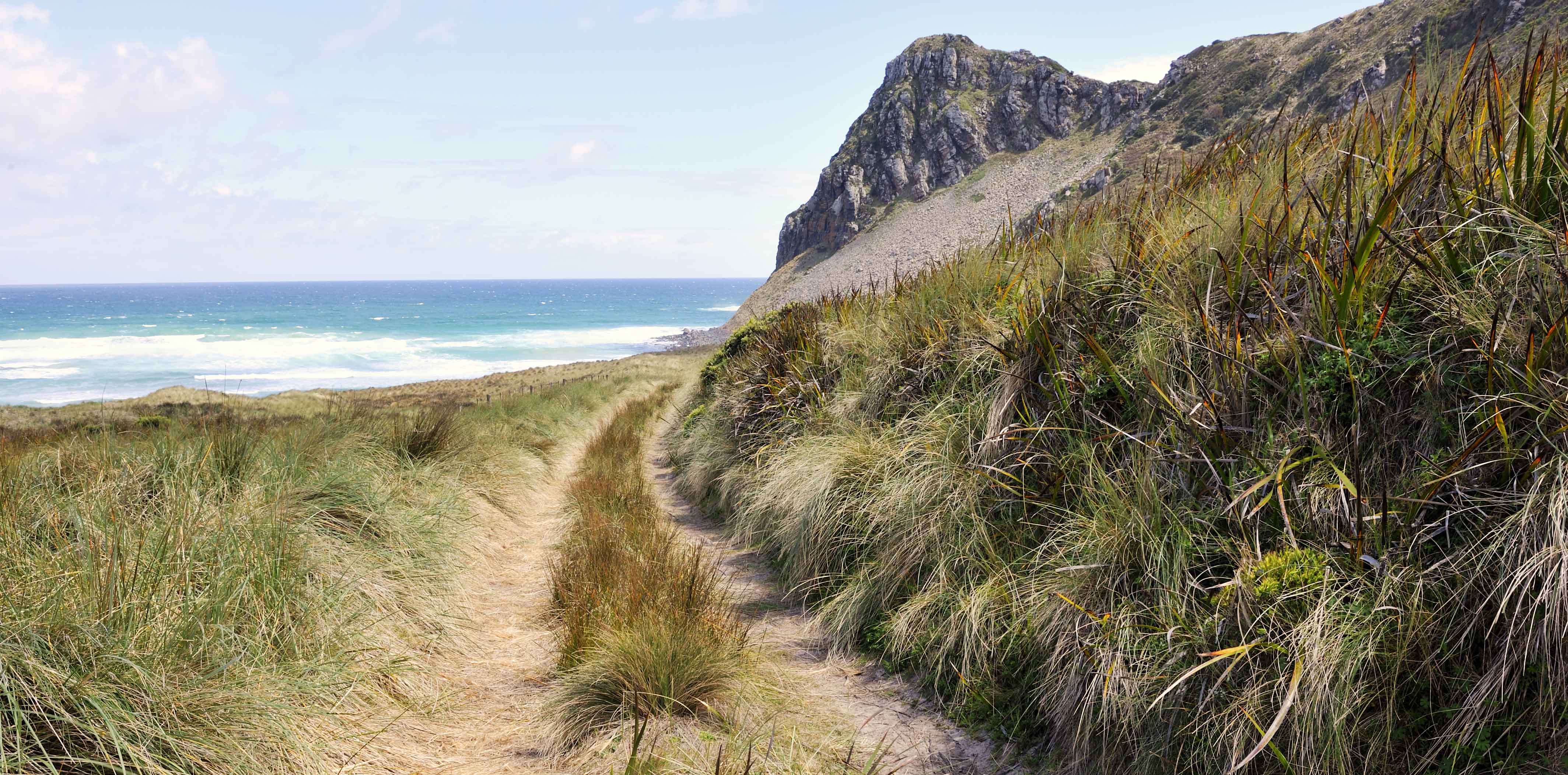If it’s not raining, it’s just about to. Rain gauges wear out rapidly. The local pharmacist buys vitamin D in bulk and fingernails stop growing in protest. Welcome to the coast ...
Nuclear accidents have left towns in Japan and Russia deserted. Collections of houses, schools, shops and pubs with radioactive beer, but no customers. Some places on Tasmania’s wild west coast have the same post-apocalyptic ambience.
“This town used to have everything,” I was told. Now 10,000 residents and 27 hotels have been reduced to one pub and 700 lost souls.
And my, oh my, what an interesting collection they are. A few were born here. “Transients” are attracted by the cheap housing but don’t stay long, the miserable winters and dull skies defeat them. Others are disconcerted economic refugees on the losing end of late-in-life divorce settlements.
If funds are low and you crave a quiet life, free of a bothersome family or a checkered past, the west coast is for you. Take, for instance, the middle-aged mother of six who moved from inner Sydney. She now defines domestic bliss as “Living alone, off-grid with four dogs on 10 kilometres of unoccupied beach and nothing but ocean between me and South Africa”.
Another convert is an ex-Brisbane truckie. His marriage had ended when “the missus took off with $30,000. We hadn’t had sex since 1989. I’ve got $8000 saved since I started doing my own banking”. He showed me a strange scar on his back, the work of his former wife with a bread knife, and we agreed that he didn’t miss the $30,000.
Happy families certainly don’t seem the norm around here. Chloe is an excitable young local with a partner who is unlikely to mourn when their relationship ends. She presented with a sore knee and explained: ”A dog ran into the back of my leg. It hurt so much that I turned around and punched my partner in the face.”
The west coast has a unique dress code and strange dietary customs. A pear-shaped man bounded into the surgery wearing heavy work boots, a towelling hat, T-shirt and voluminous navy tracksuit pants suspended by vivid red braces advertising Husqvana chainsaws. Hard not to notice.
At the local RSL I saw a stout elderly lady drinking a very large pot of beer through a straw. Maybe just her unique way of regulating her alcohol intake.
Another patient told me that his cravings for alcohol were eased with a large serve of soft vanilla ice-cream. He assured me it had something to do with secondary fermentation of lactose in the gut and “university tests in the US have shown that it works”.
The locals offer many such unique medical pearls.
“My father in law was a diabetic, he got ‘gold and stuff’ in his foot and died.” (A mining mishap, or an infection?).
“I’ve got DDT in my genes because my mother worked on a dairy farm. A paediatrician said I also have a backward gene AND a dysfunctional gene.” With such a challenging genome she must have been a nightmare in the classroom back when paediatricians didn’t prescribe Ritalin.
Ah yes, the good old days of corporal punishment. A happy, well-adjusted 75-year-old lady fondly recalled a year in the catholic education system featuring “A six-foot fence and a 10-ton nun who gave me the cuts.” Terrifying.
Another long-term local proudly claimed the title of “first to get the cuts in the new school in 1952”. The offence? Flicking a wad of ink-soaked blotting paper onto the ceiling with his ruler. Apparently, it’s still there, 65 years later.
My own education has benefited from my time here. I now know how to differentiate between tin and osmoridium when prospecting. Osmoridium is a naturally occurring alloy of osmium and tin formerly used to make fountain pen nibs. It’s so hard that, if forcefully struck, it becomes embedded in the head of a steel hammer.
I have also been treated to an informative dissertation on the manufacture of wooden clothes pegs by a man who spent 40 years in a factory perfecting the art, before being made redundant by a flood of plastic Chinese imports.
The biggest lesson of all has been the weather, which is unvaryingly miserable, dull and wet.
If it’s not raining, it’s just about to. Rain gauges wear out rapidly. The sky is grey and seems to slide down the mountain and smother the town. The local pharmacist buys vitamin D in bulk and fingernails stop growing in protest. Mine didn’t need cutting for a month and most locals don’t know what nail clippers are.
The local football oval is a verdant quagmire. Rather than running on it, you wallow in it. Last year, the best and fairest for the local side was won by the fullback, who only had three goals kicked against him all season. He’s not overly quick, but no full forward, shin-deep in black mud can break clear of him.
Despite the omnipresent rain and cloud there are sparks of light and hope, of weirdness and eccentricity. The house next door supports a large array of solar panels!
And then there’s the old lady with a very red, inflamed foot who swears she has sunburn.
Also worth seeing is the well-kept rooster coop at the local tip. It appears, years ago when many townies had chook pens, the locals grew tired of the early morning crowing and came to a collective decision to stable all offending fowls out of earshot.
This solution, unique to the west coast, works well.
Don’t forget your brolly.
Love, Dad
Dr Max Higgs is a former country GP, a current rural and remote locum and a collector of stories


